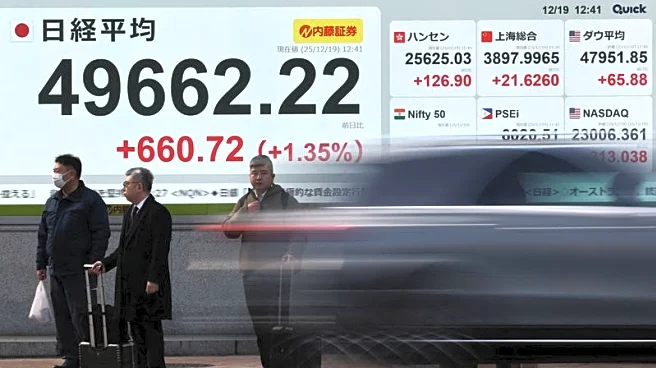What's Happening?
Burger King franchises in Baltimore are reportedly hoarding pennies in response to President Trump's directive to halt the production of one-cent coins. This move has led to significant disruptions in cash transactions across various businesses that rely
heavily on small denominations. Gary Andrzejewski, a businessman operating Burger King outlets, has accumulated 30 boxes of pennies to manage transactions for the next two months. The phaseout has prompted businesses like Kwik Trip to round transactions to the nearest nickel, while others, such as Panda Express, encourage card payments due to coin shortages. The American Bankers Association has noted that about half of the country's coin distribution terminals have ceased circulating pennies, leading to logistical challenges for banks and businesses alike.
Why It's Important?
The discontinuation of penny production is causing widespread operational challenges for businesses that depend on cash transactions. This change affects consumer behavior, as customers face rounding adjustments and are encouraged to use electronic payments. The banking sector is also impacted, with institutions forming groups to address the logistical issues of coin distribution. The phaseout could lead to increased costs for businesses needing to adapt their cash handling processes and may influence consumer spending patterns. The broader economic implications include potential shifts towards a cashless society and the reevaluation of the necessity of low-denomination coins in modern commerce.
What's Next?
Businesses and banks are expected to continue adapting to the absence of pennies by implementing new transaction policies and exploring alternative solutions for cash handling. The Federal Reserve may face pressure to reconsider its stance on penny deposits, while businesses might need to invest in systems that accommodate rounding practices. Consumer advocacy groups could emerge to address potential inequities in rounding practices, and there may be increased discussions on the future of other low-denomination coins. The transition period will likely involve ongoing adjustments as stakeholders navigate the operational and financial impacts of this policy change.
Beyond the Headlines
The phaseout of the penny raises questions about the cultural and historical significance of currency in the U.S. and the potential environmental benefits of reducing coin production. It also highlights the evolving nature of financial transactions in an increasingly digital economy. The decision may prompt discussions on the efficiency and sustainability of the U.S. currency system, potentially influencing future policy decisions regarding other denominations.















